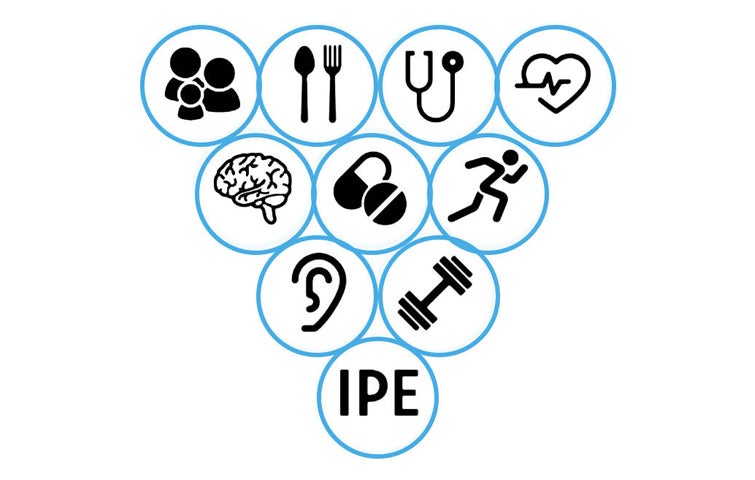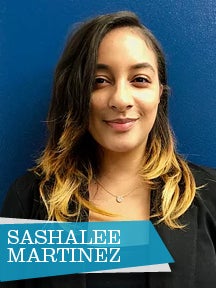health & health administration
Clinical Neuroscience | Communicative Disorders | Dietetics | Human Development & Family Sciences | Kinesiology | Neuropharmacology | Nursing | Nutrition | Pharmacy | Medicinal Neuroscience | Psychology | Public Health
What Can I Do With My Major?
One of the most exciting things about your major is the variety of career options you can pursue! Take a look at the materials below to learn about some of the most common career paths for your major.
Health and Health Administration Majors:
Resources
Training & Additional Education
Many roles within the healthcare industry require additional education beyond a Bachelor’s level degree. Graduate school requirements vary based on each program and commonly accept all undergraduate majors.
We encourage you to review our Grad School Module below to learn if grad school is the best fit for you.
Dismiss messagePlease note that your Career Education Specialists will assist you in finding resources for applying to grad schools (including building an effective personal statement), but do not advise on specific graduate programs. If you are interested in learning more about a specific program, contact that school’s graduate admissions office directly.
Valuable Alternatives Options to Consider:
The following programs provide additional experiences related to health care and social service.
Searching for a Job/Internship
In order to be competitive for the job market or graduate school, prior to graduation every student should complete a practical experience, such as an internship. There are many techniques for searching for an internship! Many of your questions regarding how to search for a job or internship can be answered by reviewing the module and videos below.
Importance of LinkedIn as a Career Tool
LinkedIn is the world’s largest online professional networking platform that features resources and benefits to support professionals in all career fields. It’s important to build your LinkedIn profile now, start connecting with your peers and professional in your field(s) of interest, and conduct research for both internship/job search and overall career development!
Job and Internship
There are a variety of websites you can use to search for jobs and internships. The following is a selection of some of the search sites focused on careers in Health and Health Administration.
Many entry level positions have various titles so there is not one title to search for in these websites. Try searching by keywords such as:
Care, Patient, Coordinator, Case, Specialist, Therapy, Community outreach, Health, Behavioral Milieu, Education, Family, Support, Counselor, Research, Residential, Health Aide, Technician, Mental Health, Wellness, Treatment, Respite, Specialist, Therapeutic, Outpatient, Engagement, and Learning
Gain Even More Experience
There are so many ways to gain experience before you graduate! In addition to internships, consider:

Research
Even if you aren’t interested in a career in research, gaining research experience is helpful for attending graduate school. It enables you to cultivate a faculty reference, enhance your applications, and gain a background for the research you’ll conduct in your graduate program.
Contacting URI Professors about Research Psychology Research OpportunitiesAcademic Health Collaborative Research & Outreach Opportunities
Academic Credit for Internships
Some of you may be eligible to earn academic credit for your internship experience. Below you will find more information relevant to your specific academic program.
Options for academic credit by academic program
Student Websites
Explore the websites below to learn what other students have accomplished in their internships!

Hey! My name is Francelly Brito I am a senior Health Studies major with a concentration in health promotion. I am currently interning at the Rhode Island Commission for Human Rights. The Commission anti-discrimination laws in the areas of employment, housing, public accommodations, credit and delivery of services. I wanted to intern with the Commission because I wanted to explore the health services and policy aspect. When I first read the description I liked how hands on and involved it was. As an intern, my primary responsibility is being an intake investigator. I do investigations and settlements of discrimination charges. I have had the opportunity to work with lawyers, investigators and commissioners and learn about what they do on a day to day basis. I appreciate the ITR program because it has helped me connect with professionals outside of my internship. I had the opportunity to interview and write a paper on Ms Elizabeth Tobin Tyler author of “Poverty, Health and Law” and program manager of Medical Legal Partnership in Boston. With the connections I have made I have been personally invited to a dialogue on assuring that the social, economic and environmental conditions impacting people’s health at Brown University Medical School. I look forward to learn and network with people in the field during the breakfast. I am glad I went through with the ITR program because it has been beneficial to me and my career. Building a professional profile and professional website to connect with other professionals in my field and share my skills and experiences. My passion to help others and to address health inequities grows more and more every day.
Resume & Cover Letter
Resume
A resume should highlight the most important information relevant to a specific job or employer, which is why each resume you write will be different. In most cases, it’s important to showcase your projects and experience that illustrate the practical application of the academic skill and knowledge you’ve acquired here at URI and within your internships.













